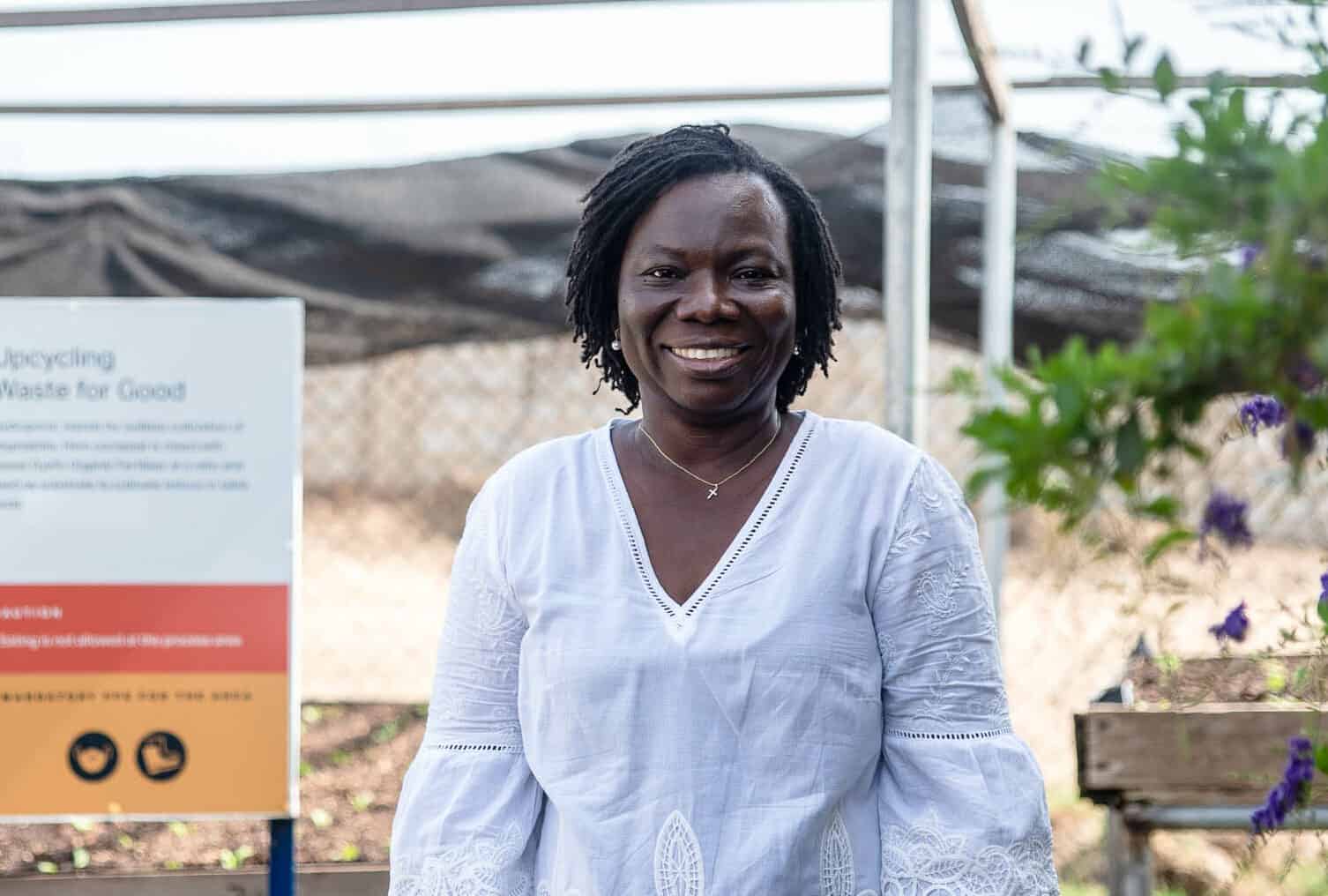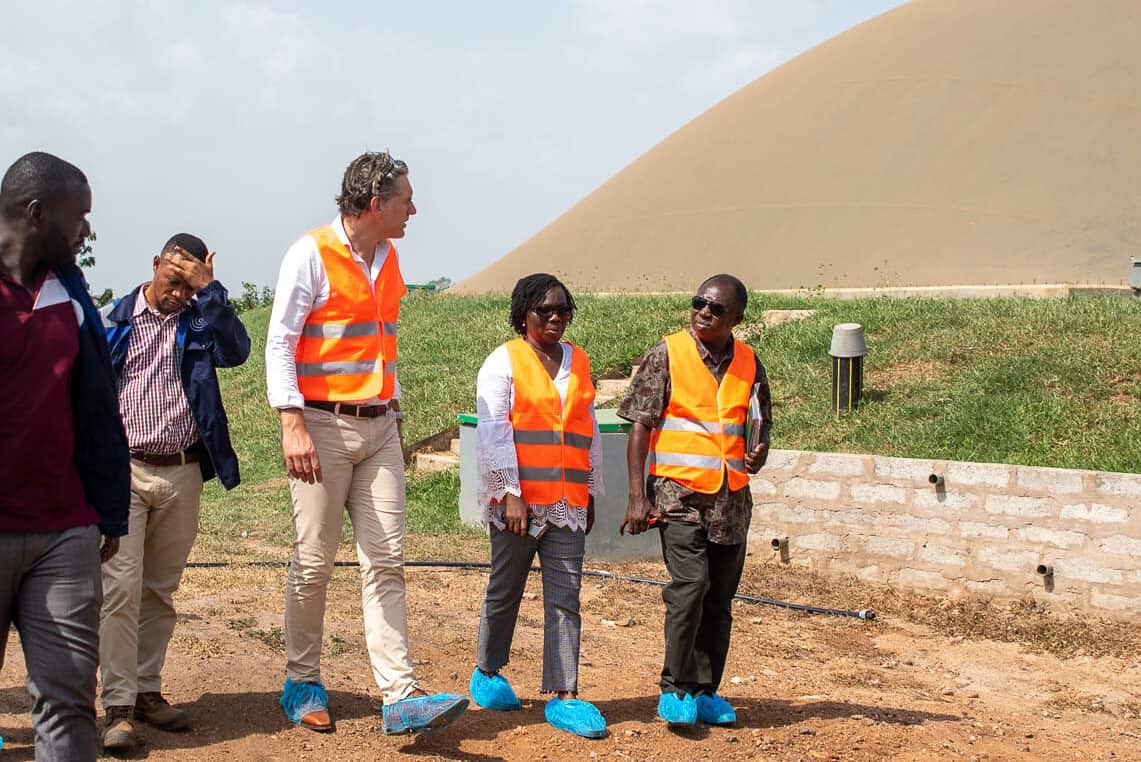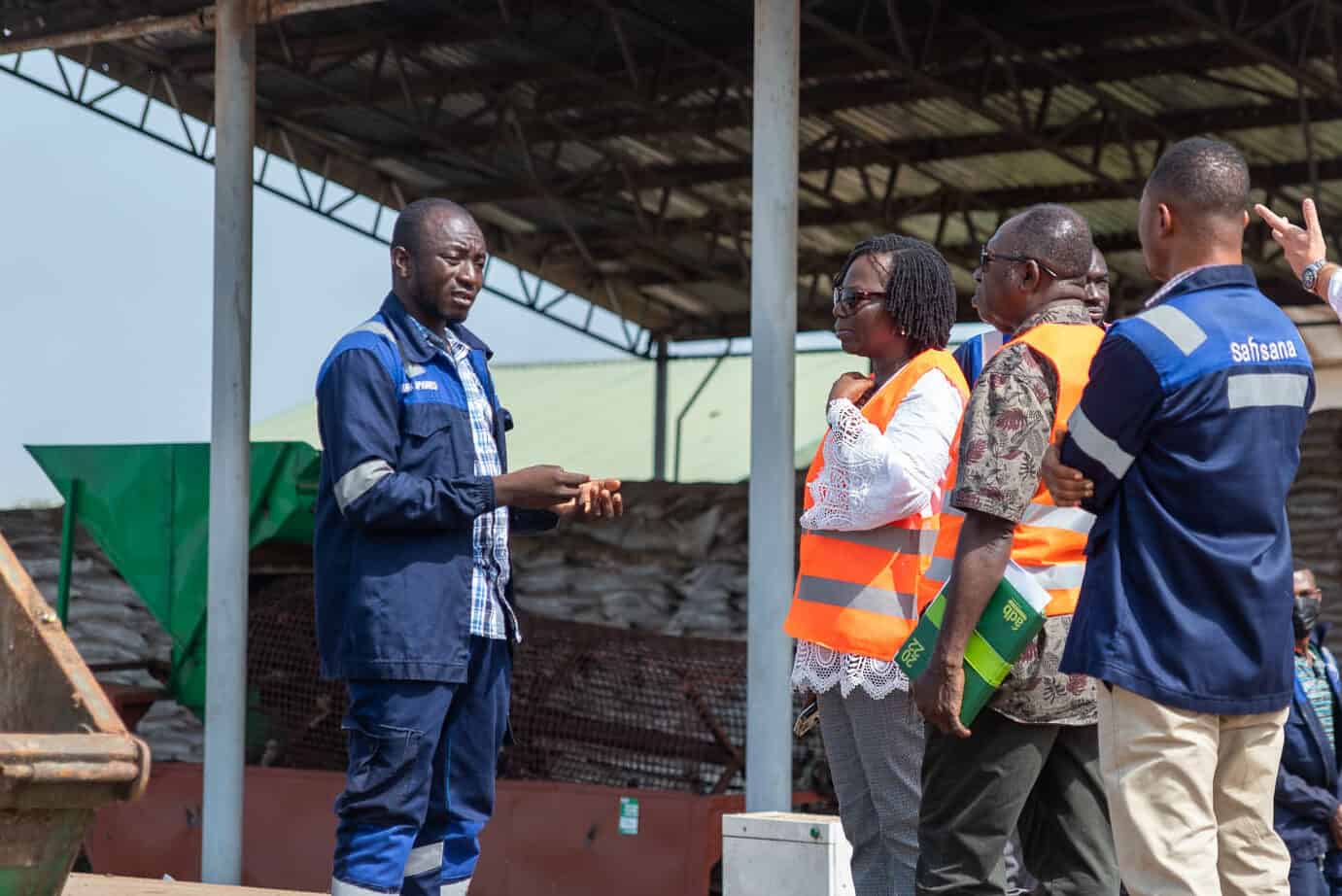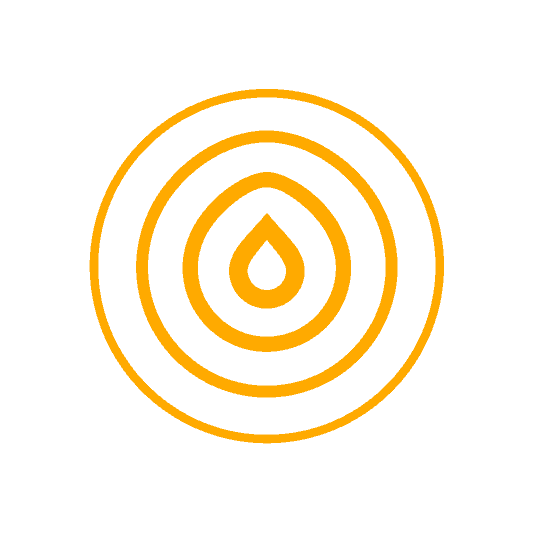
Let us introduce you to one of the board members of Safisana Ghana Ltd., Mrs. Vida Duti, who as the country director of IRC Wash in Ghana has dedicated her life to improving WASH systems in Ghana. At the age of 11, her father decided to take her for one year out of Accra to live in the small village called Sefwi Bodi in the rural areas of the Western North Region where her grandmother lived. ‘That is where I learned that a toilet was not a given for all people in the country.’ In hindsight, it was the start of her mission to bring health, human dignity, and a clean environment to the people of Ghana.
You are the director of IRC Wash Ghana? What is the mission of your organization in Ghana?
“For many people in the world, safe sanitation is a given. Many people have private toilets at home and do not realize that millions of others do not have access to any sort of sanitation. They might need to walk 2 kilometers to the nearest toilet, or even worse: an unmanaged shared space without any privacy.
I have worked at IRC WASH since 2009 first as the Country Team Leader of the Sustainable Services at Scale project in Ghana. In 2012, I was appointed to head the Ghana country office. Today we are 16 staff in Accra and the regional office, which is based in the Ahafo Region.
For IRC WASH, safe sanitation is a human right. IRC was founded in the Netherlands in the sixties and has branches/operations in 8 countries, mostly in Africa: Burkina Faso, Ethiopia, Mali, Niger, Uganda and Ghana, but also in India and Honduras. Our mission is to facilitate the implementation of strong WASH systems by focusing on the enabling environment. So we don’t build the physical infrastructure but we leverage partnerships with governments and public partners, making sure all the conditions are in place for systems to be built such as governmental policies, long-term planning and strategies, management frameworks, technical support, and financing.”
How did you come to work in the WASH sector?
“I was born and raised in Accra, but at the age of 11, my father took me and my siblings to the village in the Western North Region where my grandparents lived. It was a very formative experience. Here I learned for the first time that a private toilet is not a given for everyone and that people had to walk to a nearby toilet. This village culture of living with the extended family made a thorough impact on me as a kid. I think it all circled back to me later in life, as one of the reasons why I started my career in WASH.
I realized our lives and our health are around sanitation. Every water we drink comes from a river or a spring. If we continue to practice open defecation, rain continues to flush out feces into water bodies that we use for irrigation and drinking. It sounds harsh but it is true: if we don’t prioritize sanitation, we kill ourselves.”
How big are WASH-related problems in Ghana? How does poor sanitation affect people’s lives?
“Safe sanitation is one of the biggest challenges for people to deal with, as it relates to health, hygiene, and human dignity. There is still a lot of work to be done.
We are making progress but the pace of progress is not as fast as one would expect. We are still in the developing phase. In numbers, Ghana is not too different compared to Sub-Saharan regions. The whole world is off track with SDG 6 and it is not likely that we will achieve SDG 6 in 2030 and that is very concerning.
According to the most recent report of the Joint Monitoring Programme by the WHO and Unicef In Ghana, currently, only 29% have access to basic services, about 57% use shared or public facilities and 18% still defecate in the open, which 1 out of 5 people. In the rural areas, this number is even higher: over 31%. So indeed, in terms of access to safely managed sanitation, we are far behind target. We went from 12% of the population in 2000 to 16% in 2022. But if you look at the sanitation ladder we are making progress on improved and limited sanitation services, especially in the urban areas. Yet in the rural areas, there is still a lot of work to do. To date still, many people need to walk first to the closest toilet being in a closeby family house or a communal toilet.”


What is the current governmental policy on sanitation?
“In the past, the governmental sanitation policy was focused on building community toilets. However, the strategy around safe sanitation has shifted over the last decade. The old communal toilets with pit latrines are being phased out in many villages because these open shared spaces with pit latrines are now classified as unimproved due to the need for more privacy.
The SDGs coming into effect pushed for a new national policy on sanitation and water. Since 2015, the goal has been to promote private household toilets for everyone. Every individual must have access to a private toilet. But this comes with many challenges, starting on the ground. Individuals must be able to put up a structure to put up a toilet on their compound. There is often not enough knowledge and skills to construct a toilet. Similarly if one builds a toilet connected to a septic tank, but the tanker service is not extracting the sludge for treatment, that does not solve the problem. “
What is the situation with the treatment of waste?
“The way liquid waste is being managed is also changing. In the past, most of the liquid waste was dumped. Or they would dig a hole and bury it. There was this place called Lavender Hill in Ghana, where all feces were dumped. Now the hill has been eradicated. The number of treatment centers and utilities has increased. Now you see progress has been made in the establishment of infrastructure to properly manage liquid waste. Recycling is becoming a trend. The number of recycling plants such as Safisana has increased a lot. A new policy has been put into force to promote shared partnerships with the private sector. One of the targets the central government has set is that there should be one recycling plant in each region of the country.”
What motivated you to become a board member of Safisana?
“Safisana puts value to waste. I think that is such an incredible and powerful idea that creates a lot of opportunities. Cleaning the environment contributes to improvements in health, it generates jobs and improvements in livelihoods. Investments in sanitation are always looked up as risky, people think that their investments wash away. But in the case of Safisana, because of the circular approach, sanitation becomes an economically viable concept as waste is turned into valuable products: biogas, electricity, and organic fertilizer.
However, there are still challenges to overcome when it comes to scaling. Both the agric and energy markets need to be activated much more. To this date, the government is still importing chemical fertilizer. Education on the use of organic fertilizer needs to be intensified, and we also need a policy to support the use of organic fertilizer.”


What are the strengths of the Safisana model?
“The circular economy and the cross-sector approach. Safisana works across the agric, energy, and food sectors. That is the game-changer for Ghana. The recycling plant in Ashaiman is just the tip of the iceberg. We need to define bottlenecks and create the right conditions and opportunities to scale in Ghana and beyond. In my role as a board member, I will continue to do everything in my power to support Safisana on its mission.”

